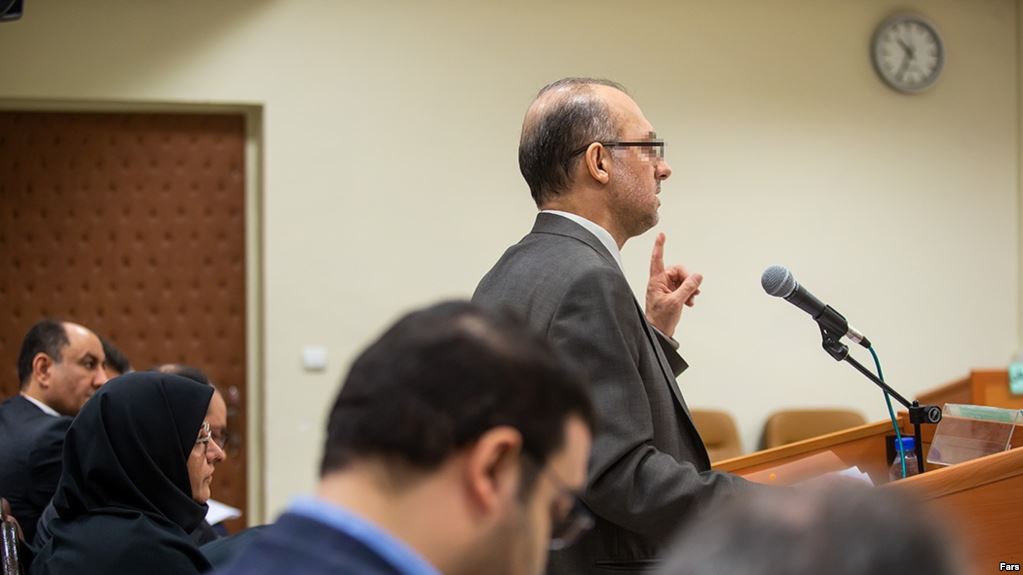Defendant Reza Hamzelou, accusing of mishandling Government oil and oil-related revenues, in court in Tehran, Iran, March 9, 2019
A high-profile corruption trial has reopened in Iran, with the case linked to the circumvention of US sanctions during the Ahmadinejad Government up to 2013.
Fourteen suspects are accused of diverting 6.66 billion Euros ($7.49 billion) of foreign currency accrued from the export of petrochemical products. Among them are Reza Hamzehlou, the former managing director of the Iranian Petrochemical Commercial Company, and Marjan Sheikholeslami , who owned two trading companies in Turkey.
A deputy to the Iran Prosecutor General said the suspects converted the foreign currency into the Iranian rial before returning it to the government, making a large profit off the conversion.
The transactions occurred as the US and UN stepped up sanctions from 2010, amid tension over Iran’s nuclear program that lasted until an agreement between Tehran and the 5+1 Powers (US, UK, France, Germany, China, and Russia) in July 2015.
The Ahmadinejad Government reportedly implemented procedures to bypass the sanctions. With the resulting lack of transparency, there was widespread embezzlement and mishandling of government funds. Most of the corruption cases are connected with diversion of government revenues from sales of oil and oil products.
Ahmadinejad ally and tycoon Babak Zanjani, who had a series of companies in Turkey, Central Asia, Malaysia, and the Gulf States, has been sentenced to death.
Iran: The Downfall of Billionaire Babak Zanjani?
Three of the suspects, including Sheikholeslami, live abroad. She reportedly left Iran for Canada without paying debts to the Revolutionary Guards financial conglomerate Khatam ol-Anbia.
Another suspect, Amin Qorashi Sarvestani, was arrested in the US in 2014 for selling satellite equipment to Iran.

